Business households are worried.
In the draft Law on Personal Income Tax (amended), the Ministry of Finance proposed to amend and perfect regulations on tax calculation methods for business income of resident individuals.
To implement the policy of eliminating lump-sum tax from January 1, 2026, and encourage individual businesses to establish and convert into enterprises, the draft Law supplements the method of calculating tax on income from business of resident individuals with annual revenue above the level prescribed by the Government, determined by multiplying taxable income by the tax rate of 17%.
This rate is equivalent to the tax rate applied to enterprises with total annual revenue from over 3 billion VND to no more than 50 billion VND, according to the provisions of the Law on Corporate Income Tax.
Before this proposal, Ms. Thu Huong, owner of a grocery store in Hoang Liet commune ( Hanoi ), was worried because she did not have the habit of keeping invoices and expense documents.
“If we apply a tax rate of 17% on taxable income, it will be too high for small businesses like us. Moreover, we will have trouble proving input costs. For example, if I hire someone to deliver beer crates or instant noodles to customers, how will I deduct the costs? If I cannot prove the costs, taxable income will increase, and the tax burden may even be higher than the lump sum,” said Ms. Huong.
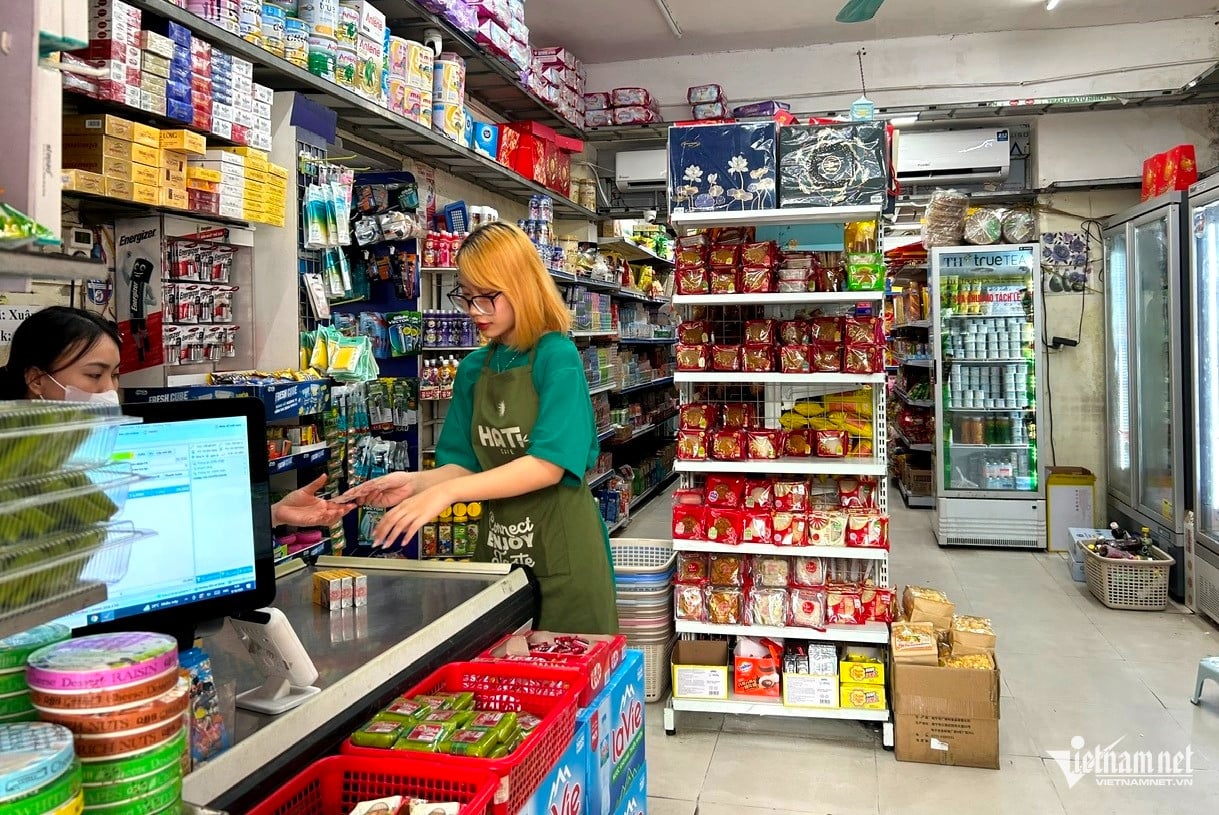
Sharing with VietNamNet reporter, Ms. Le Thi Thuy, CEO of Bach Khoa Consulting Services Company Limited, said that it is necessary to understand that taxable income is equal to sales revenue minus reasonable deductible expenses, including cost of goods sold and expenses incurred during the business process such as hiring employees, premises, advertising...
If calculated this way, the Ministry of Finance plans to apply it to individuals and business households with revenue exceeding the prescribed threshold, similar to the current tax calculation method for businesses.
However, in reality, due to not having full legal status as an enterprise, business households often do not have enough invoices and documents for many expenses. Therefore, if applied, it will be very difficult to implement.
According to Ms. Thuy, this method of calculation is only suitable for business models. Therefore, any business household that meets the conditions should convert to an enterprise to operate with a legal basis and larger scale. For individuals and business households, the tax calculation method needs to be simplified in order to encourage them to proactively declare and pay taxes according to regulations.
Should be divided by revenue and field for tax management
Mr. Nguyen Van Duoc, General Director of Trong Tin Accounting and Tax Consulting Company Limited (Trong Tin Tax), commented that this proposal is consistent with the thinking of classifying individuals and business households by field and revenue scale for tax management. Individuals and business households with large revenue applying a tax rate of 17% on taxable income will ensure policy consistency with the Law on Corporate Income Tax.
However, Mr. Duoc said that it is necessary to refer to relevant regulations to develop a suitable plan to classify business households.
According to him, individuals and business households should be divided into two groups. The group with a revenue above the prescribed level will be subject to a tax rate of 17%, and the group below that level will be subject to the current method of multiplying revenue by the rate, only needing to use electronic invoices connected to cash registers. The Government will later determine the revenue level to choose the applicable method.
Currently, business households pay tax directly on revenue, that is, revenue multiplied by the tax rate. This regulation applies to business households that declare, have full invoices, documents and implement a simple accounting regime according to Circular 88 of the Ministry of Finance.
“The current tax policy for business households causes a situation where taxes are stacked on top of taxes, losses still have to be paid, and vice versa, high profits have low taxes, creating inequality and distorting economic transactions. This is a difficulty and a big burden for business households in the context of abolishing lump-sum tax and transparency of tax obligations,” Mr. Duoc stated the reality.
Therefore, Mr. Duoc proposed the management of taxes, invoices, documents and the application of accounting regimes for business households divided by field and revenue scale.
Specifically, business households with revenue under 1 billion VND (type 1) are exempt from tax, do not have to use electronic invoices, the accounting regime creates convenience and reduces compliance cost pressure for business households, while saving resources of tax authorities and society.
Business households pay tax by the direct method on revenue (types 2 and 3), i.e. revenue multiplied by the tax rate. At the same time, use electronic invoices from cash registers connected to the tax authorities according to the provisions of Decree 70, but do not have to implement the accounting regime, except in cases where business households voluntarily implement it when there is a need for transparent financial management.
Mr. Duoc assessed that this option is highly feasible, ensuring that the state budget is collected correctly and fully, creating fairness, equality and transparency in business as well as tax obligations, while reducing the pressure of compliance costs when taxpayers do not have the need or have not yet had the need for financial management and sales through the accounting regime.
Source: https://vietnamnet.vn/de-xuat-thue-17-ho-kinh-doanh-lo-lang-chuyen-gia-noi-can-phan-theo-doanh-thu-2443072.html





![[Photo] Soldiers guard the fire and protect the forest](https://vphoto.vietnam.vn/thumb/1200x675/vietnam/resource/IMAGE/2025/9/27/7cab6a2afcf543558a98f4d87e9aaf95)


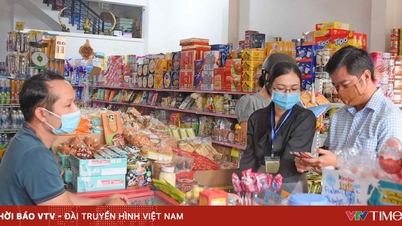

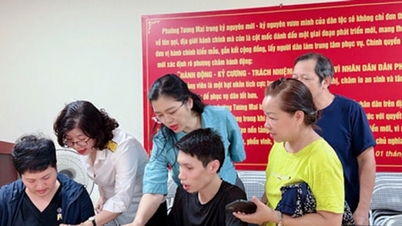






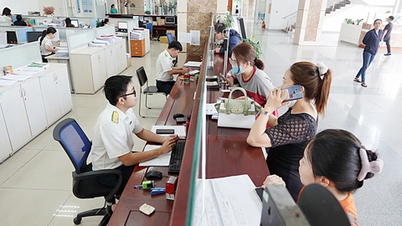







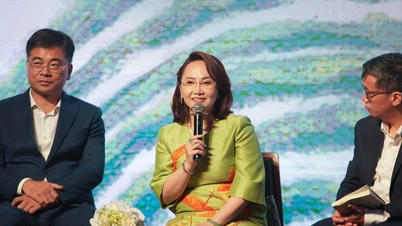






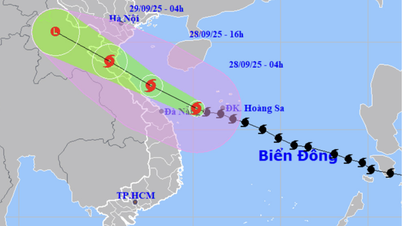






![[Photo] Prime Minister Pham Minh Chinh attends the 1st Hai Phong City Party Congress](https://vphoto.vietnam.vn/thumb/1200x675/vietnam/resource/IMAGE/2025/9/27/676f179ddf8c4b4c84b4cfc8f28a9550)
























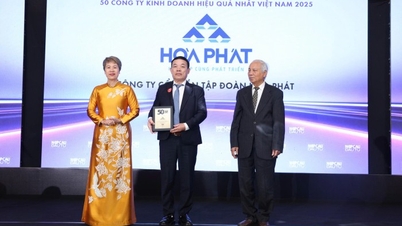




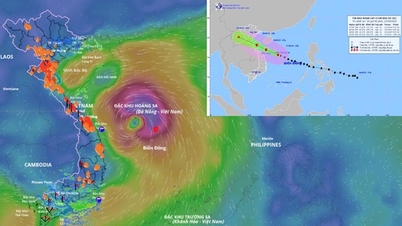







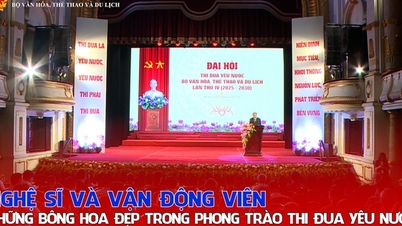












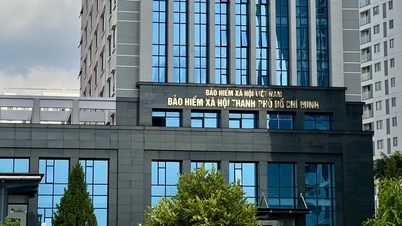


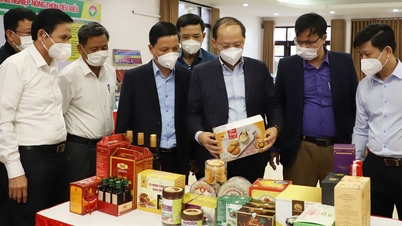










Comment (0)